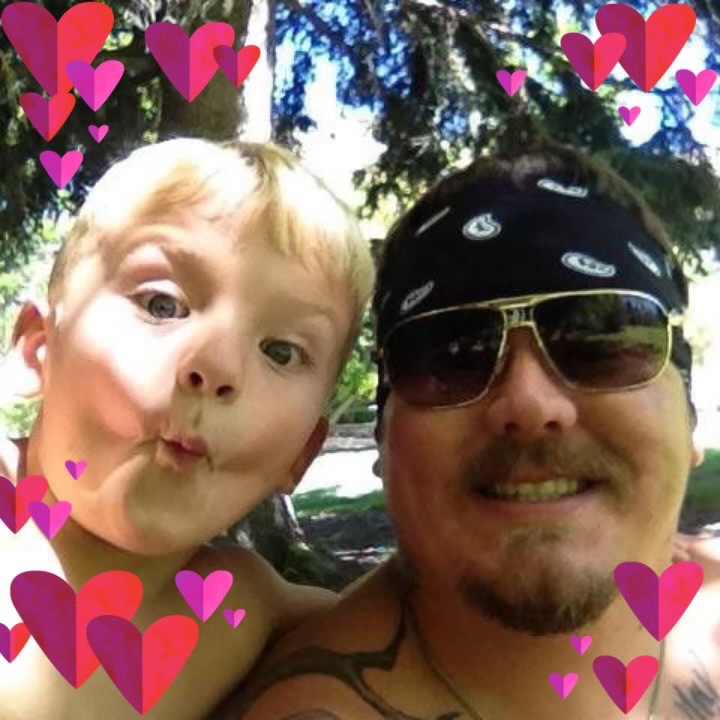On November 23, family, friends, and the community will gather in Logandale, Nevada, to celebrate the life of Ray Cortez—a coach, mentor, and beloved figure in Pahrump’s youth sports. Known as “Coach Ray,” he spent over a decade shaping young athletes in football and wrestling, instilling values of hard work, discipline, and respect. But his influence extended far beyond the wrestling mats and football fields; Ray was a father figure, a leader, and a friend to countless youth and families who were forever changed by his commitment and compassion.
A Journey Rooted in Passion and Purpose
Ray’s journey as a coach began with his son, Gunner, whom he signed up for youth football. In his first role as an assistant coach, Ray quickly discovered a passion for guiding young athletes, drawn in by the influence he could have on their lives. Encouraged by his own high school coaches in Indian Springs, like Sopa Faga and Mike Guerino, Ray embraced coaching as a way to help young people reach their potential. Johnny O’Neal recalls, “Ray was a hard-nosed, stern coach who molded young men to face life’s hard lessons.” For Ray, coaching wasn’t just about the game; it was about preparing kids for challenges on and off the field. As his son Gunner recalls, Ray’s voice carried authority and purpose. “When Coach Ray spoke, the ground shook, and you listened,” Gunner shared. This was more than a matter of respect; it was the power of a man who believed wholeheartedly in what he was doing.
In 2011, Ray took on head coaching duties for both wrestling, originally called Powerhouse Wrestling Club, and football, and by 2013 he was leading youth sports teams known as the Pahrump Jr. Trojans. This name change, Gunner explained, was intentional: “He wanted these kids who were beginning their athletic journeys young to be Trojans from the beginning of their career until the end when they would join the Pahrump Valley High School Trojans.” By setting this vision, Ray helped to unify the community’s sports programs, creating a sense of pride and continuity among players as they grew up.
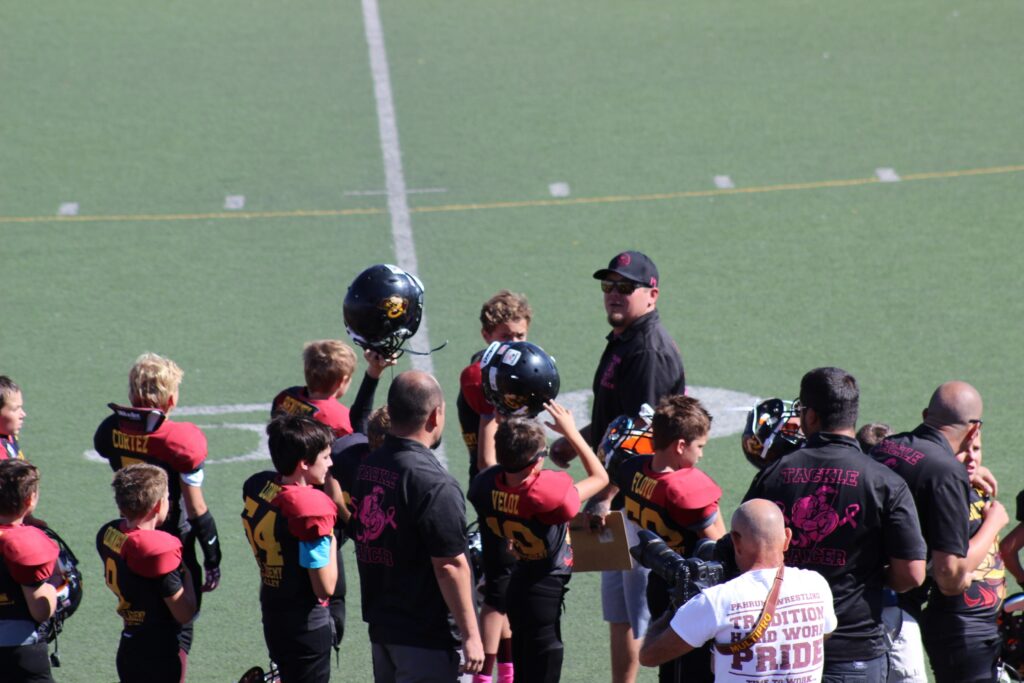
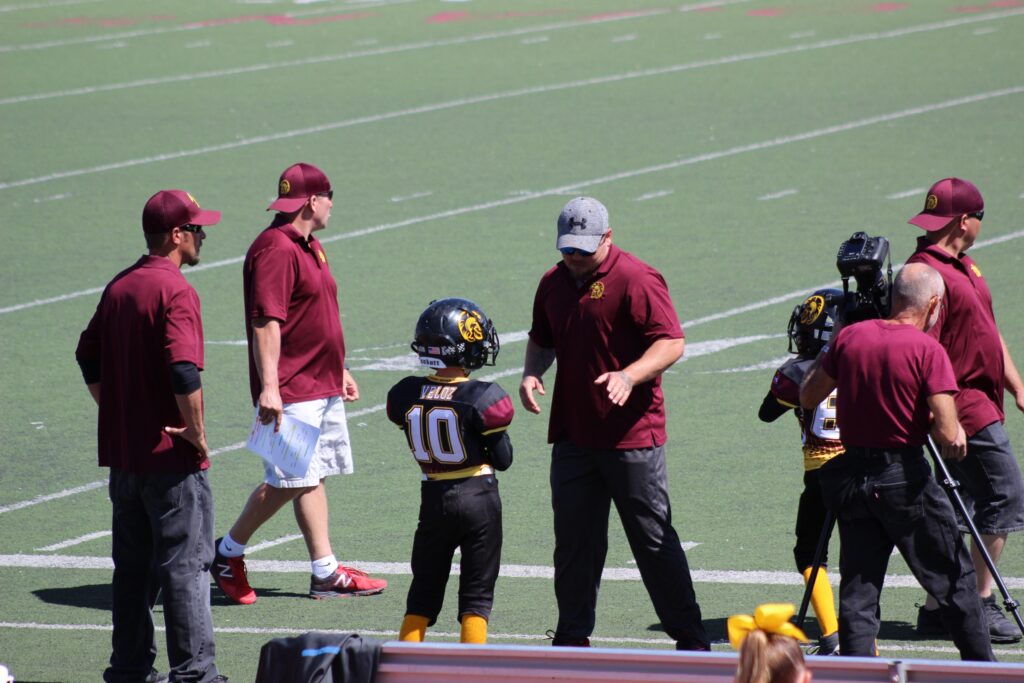
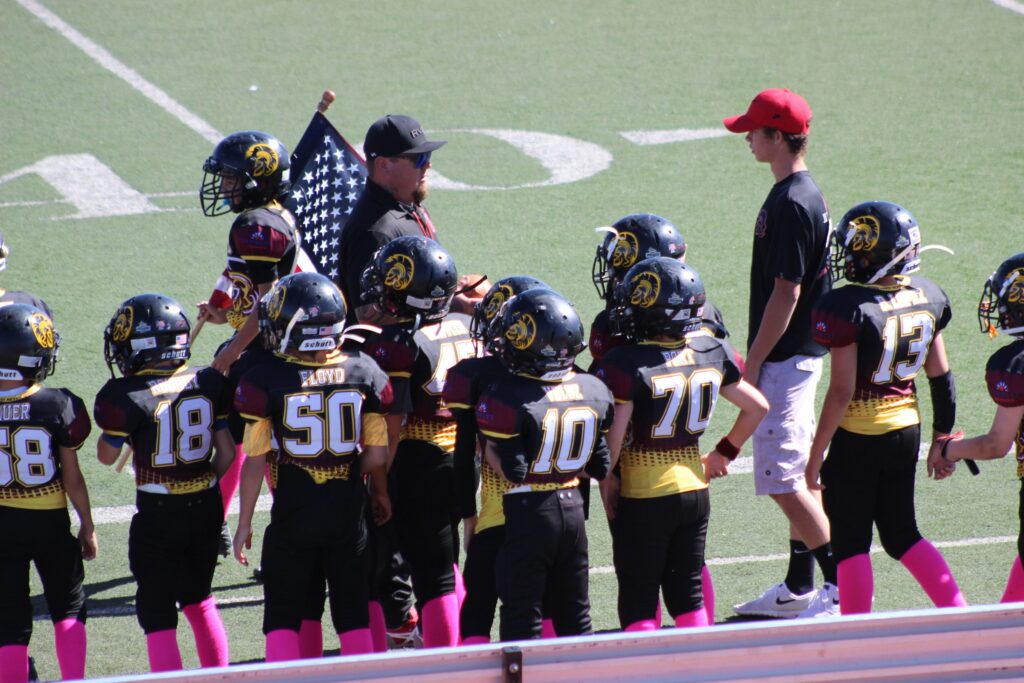
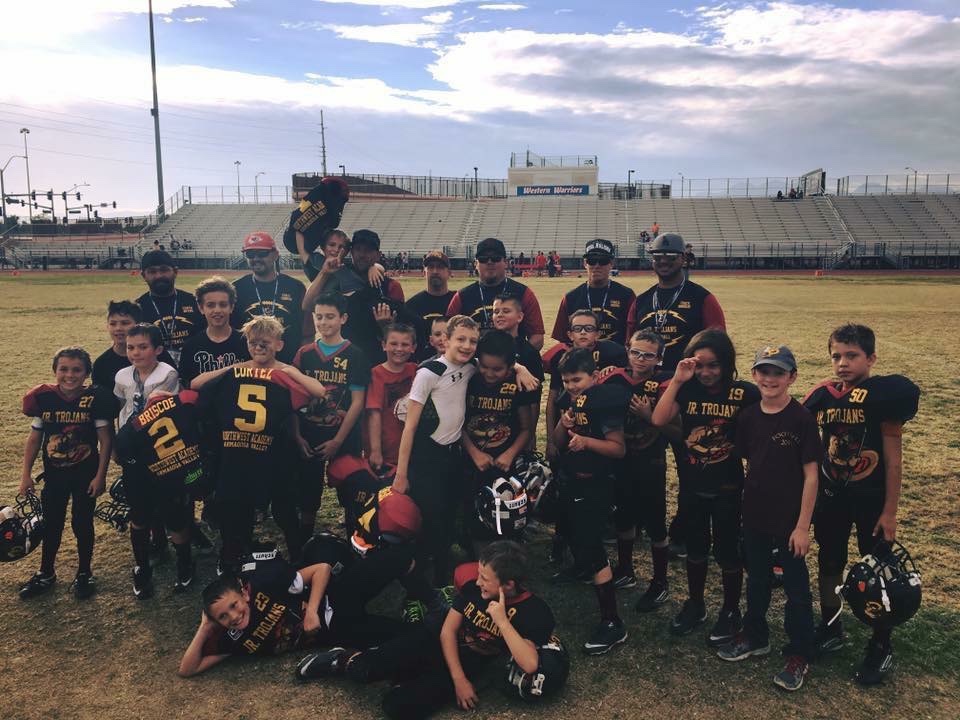
A Tradition of Tough Love and Discipline
Ray’s coaching style was built on tough love and accountability. Known for his catchphrase, “Hard work, never quit,” he set high expectations for his players and pushed them to meet those standards. Gunner shared that his father always held education and respect as top priorities, ensuring that players performed well in school and demonstrated good sportsmanship. “He always preached ‘student first, athlete second,’” Gunner said. For Ray, being a good athlete was only part of the equation; he also wanted his players to excel academically and become good citizens.
“Ray was a tough guy through and through,” Johnny O’Neal recalled. “He volunteered his free time as a coach on top of working a full-time job, juggling football in the fall and wrestling for the rest of the year. For ten years, Ray rarely complained to anyone—parent or child—about the commitment. He sacrificed his personal time, not for attention or praise, but to show his athletes that hard work pays off.” Although some parents disagreed with his tough-love approach, Ray’s unwavering dedication to every child remained evident. He never let criticism affect his commitment to coaching, and his sacrifice spoke volumes about his belief in the power of discipline, persistence, and selflessness.
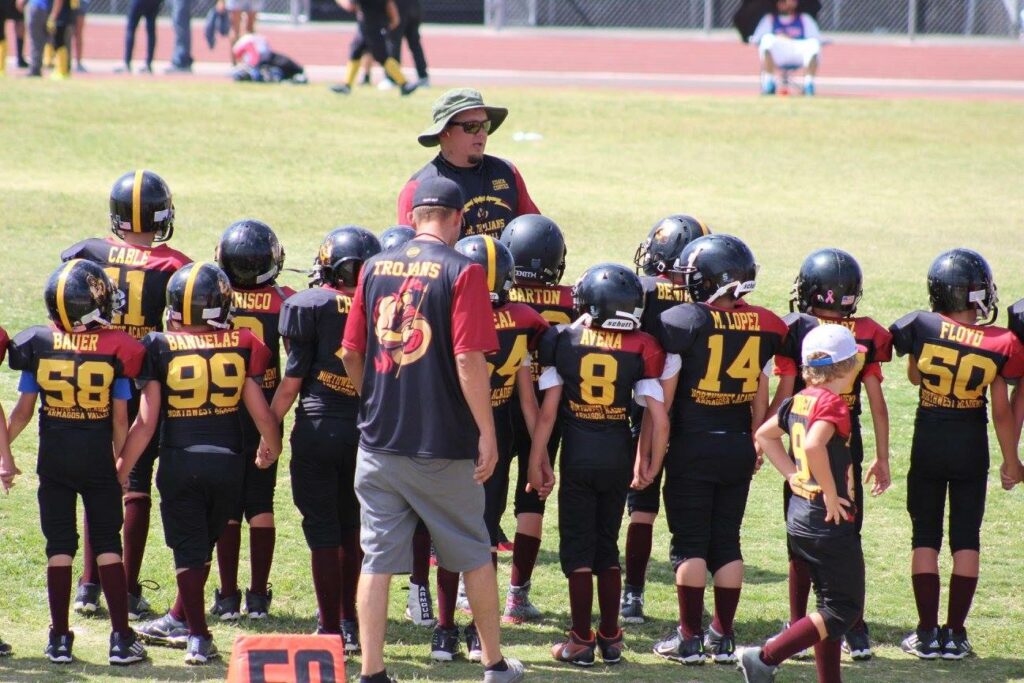
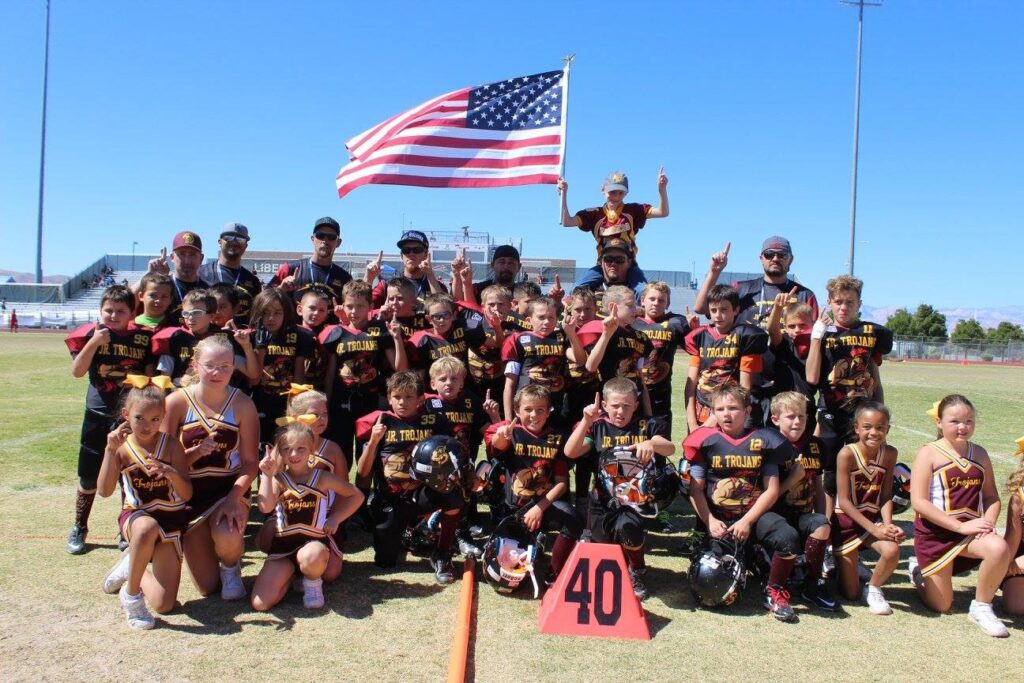
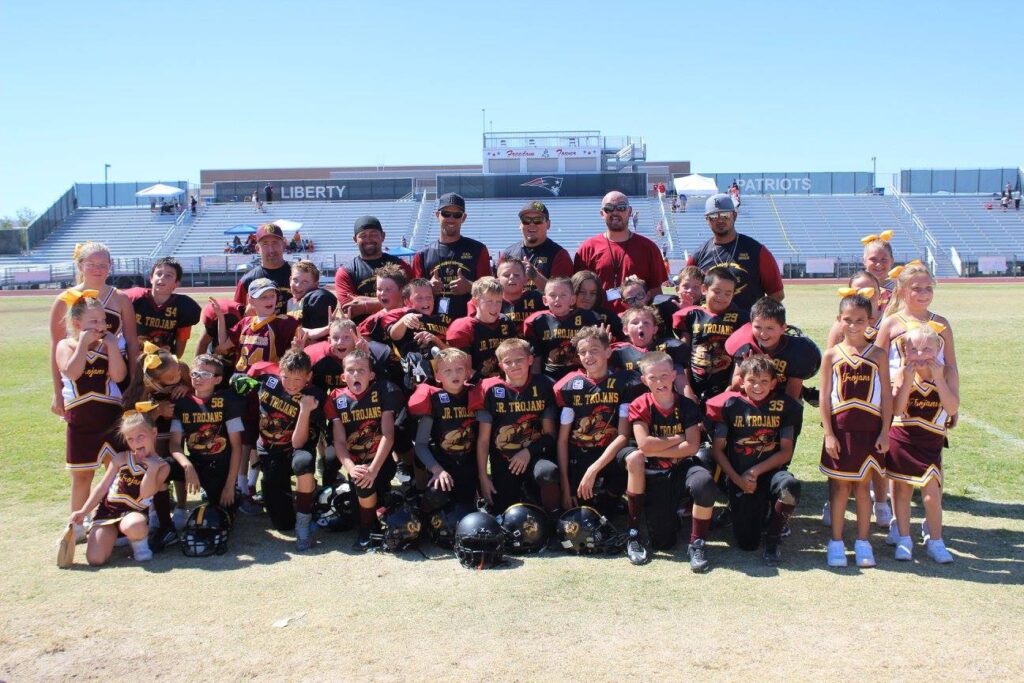
Heidi Horibe, who recalls Ray coaching her son Kayne in both football and wrestling, saw firsthand how Ray instilled these values. “Ray was big on education, good sportsmanship, a good attitude on and off the field,” she shared. “He expected athletes to be respectful, whether it was at practice, in the classroom, or at home. Ray taught my son a level of discipline I don’t think he would have learned anywhere else.”
One of the defining memories for Heidi was when Kayne became upset after a game and threw his helmet. Ray didn’t let it slide. Instead, he told Kayne to pick it up, then made him run for the entire next practice. It was a tough lesson in self-control and sportsmanship, one that Kayne remembers clearly. “Coach Ray taught me the meaning of sportsmanship that day,” Kayne recalled, noting how Ray’s disciplined approach shaped him.
Beyond his coaching style, Ray fostered traditions that motivated his athletes. His “Warrior Award,” given to players who embodied resilience and commitment, was a highly coveted honor. Each week, Ray would announce the recipient with pride, placing the Warrior Necklace around the player’s neck as the team cheered. “It was something to be proud of,” O’Neal remembered, “and the kids loved Ray for it. He would place his big ol’ hands on their shoulders and have everyone on the team scream the kid’s name. Then he would have that kid lead the team in their end of the practice chant, WHO ARE WE? TROJANS! WHAT DO WE DO? WORK!
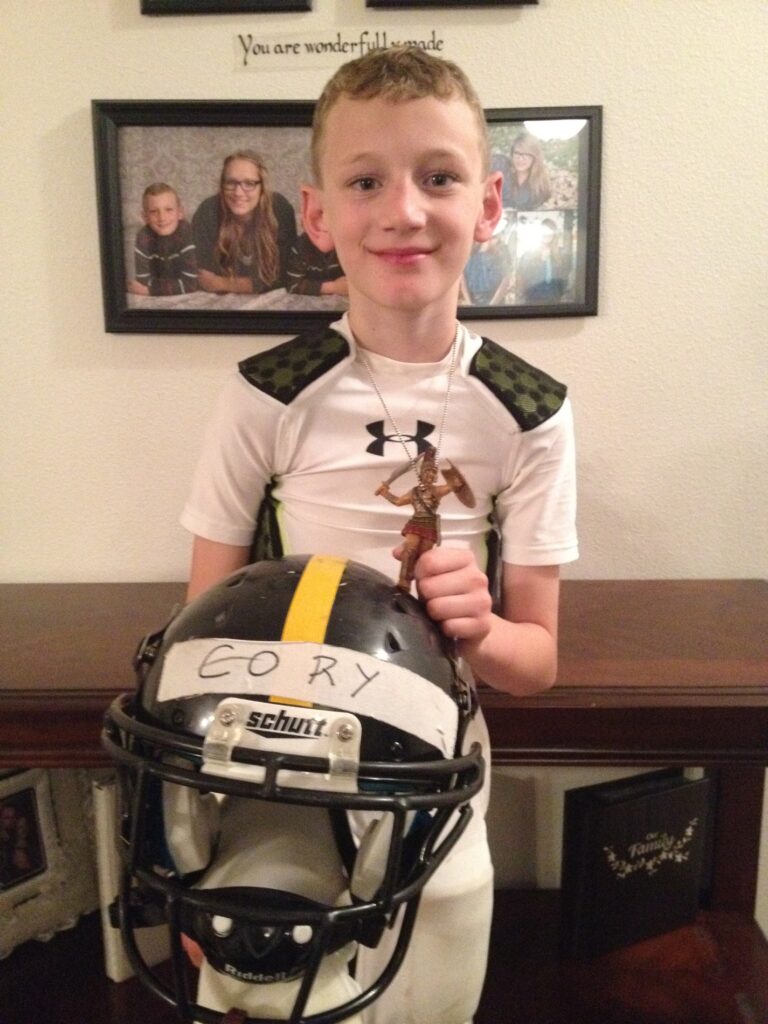
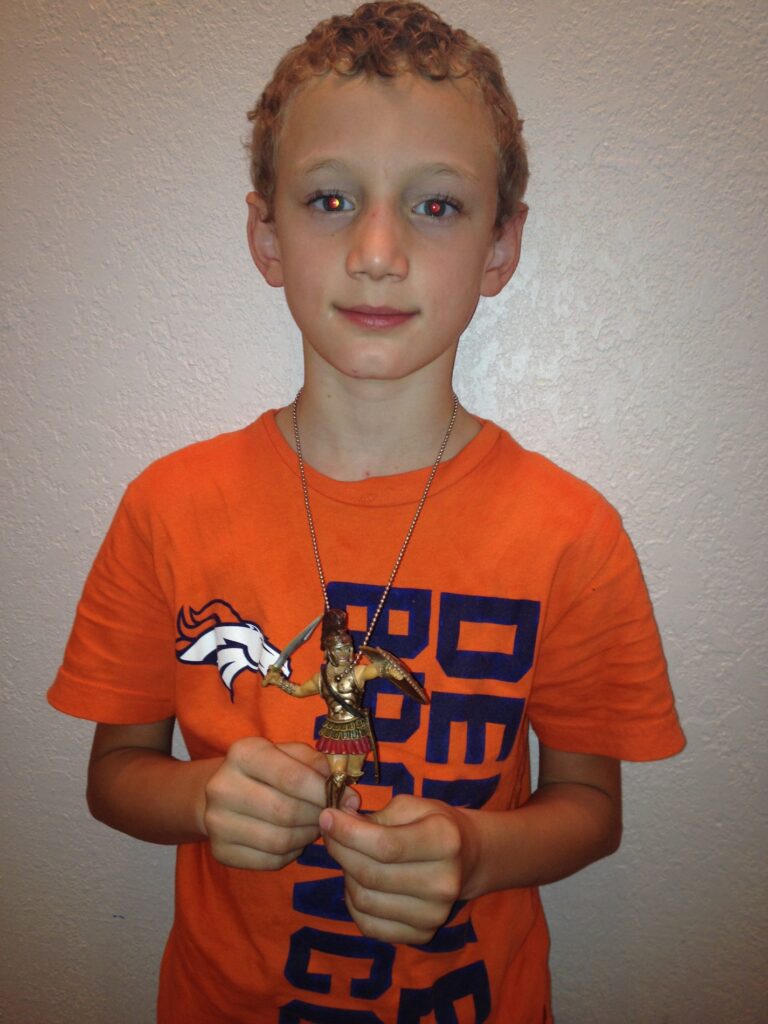
Ray took his youth football teams deep into the playoffs year after year, often making it to the championship game in both the Pop Warner and NYS Leagues. His efforts earned him recognition, and he was a runner-up for Coach of the Year multiple times in the NYS League, even competing against top Las Vegas coaches.
Shaping Young Lives and Building Bonds
Ray’s influence extended beyond coaching; he was a mentor and father figure to many. Players like Matthew Lopez found in Ray a source of stability and encouragement. Matthew’s mother, Stephanie Lopez-Avena, shared how Ray transformed her son’s life. As a young boy, Matthew struggled with school, often dreading going to class. Football with Coach Ray changed everything. “Ray pushed Matthew, asked for progress reports, and made him a top player on the team,” Stephanie recalled. “Matthew has been on the AB honor roll ever since. Ray loved my son like his own.”
Ray’s former players remember him not just as a coach, but as someone who made them believe in their potential. Brennen Benedict, who was coached by Ray for ten years, said, “He changed the way I thought about things. He made me always feel like I could get through anything; nothing was impossible if I just worked hard and never gave up.”
Ray’s guidance helped forge lasting bonds among teammates and taught them life skills they carried off the field. River Cable shared that Coach Ray made every player feel like part of a family: “He always made it clear that we shouldn’t be doing anything for ourselves but for the person standing next to us. He made us feel like a family. It wasn’t just our team and he wasn’t just our coach. He made me a stronger person and he taught me to never hesitate and go after anything I wanted and he never meant it for just football”
For River, this lesson of unity was just one example of how Ray’s influence went beyond football and wrestling. For Ethen Hutchison, Coach Ray taught him to go after what was important to him, “He taught me to never back down from anything that I wanted and to never quit.”
Gunner reflected on his father’s impact on his friends, many of whom looked up to Ray as a father figure. “He treated all of us the same—he never played favorites,” Gunner said. Johnny recalls he used to say, “We’re not raising wimps, Johnny. We’re raising sons to be tougher than we were.” Ray’s lessons were clear: work hard, never give up, and support the person next to you. Gunner and his friends have carried this lesson into their own lives, embracing the resilience and determination Ray modeled for them.
Many of Ray’s former players echo this sentiment. Chase Otteson credits Coach Ray with teaching him resilience. “He influenced me to face challenges head-on,” Chase said. “He taught us to get up and laugh at pain, to embrace the struggle in life.” Another athlete, Cory O’Neal, shared a quote, that to him, exemplified Coach Ray’s influence. “‘It is easier to find men who will volunteer to die, than to find those who are willing to endure pain with patience.’ This quote immediately reminds me of Coach Ray. He always pushed us to be that second man. I attribute my athletic and academic success to this lesson I learned from him. Rest in peace coach Ray, I’ll always remember the lessons and triumphs I shared with you.”
Moments of Impact: Tough Love with a Soft Spot
Though Ray was known for his tough coaching style, he also had a soft spot for players who showed heart and determination. As Gunner recalled, “Dad didn’t just care about wins or losses. He wanted us to learn, to grow, to find strength in ourselves.” One touching example of Ray’s softer side came during a youth football game when a player on the opposing team, who had a terminal illness, was on the sidelines. Ray spoke to the opposing coach, suggesting they let the boy play one last time and even ensuring his own players wouldn’t tackle him. As the boy scored a touchdown, the entire stadium erupted, moved by Ray’s act of kindness.
In wrestling, Ray demonstrated similar compassion. He often spent extra time after matches with each athlete, kneeling down to console, correct, or celebrate their performances. “Ray was always right there, teaching, congratulating, or consoling,” Johnny O’Neal said. “He never hesitated to get on the mat and help the kids with a move, no matter how tired he was.” Blyson Marquez, who saw Ray as a father figure, remembered how even after Ray was no longer his official coach, he approached Blyson before an important match with advice that helped him win. “He was like a dad to me,” Blyson said. “He always made me a better person and wrestler.” Cole Miller echoed that sentiment, sharing to Gunner, “Yeah, as a young squirt, when I was going to wrestling practices and hanging out with you guys, it was a blast. Your dad definitely influenced how I saw what a good father should be. I loved your family dynamic and I thought it was because he was there at the center. I’m glad you and him got me into wrestling. I don’t think I’d be the person that I am today without it”
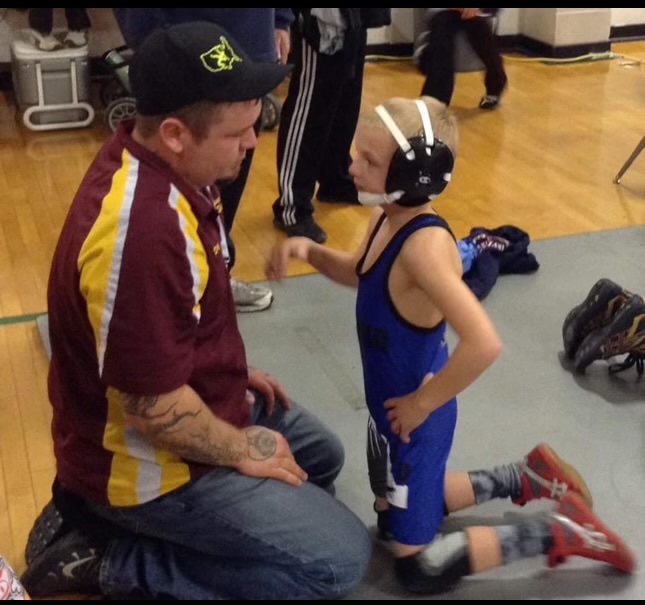
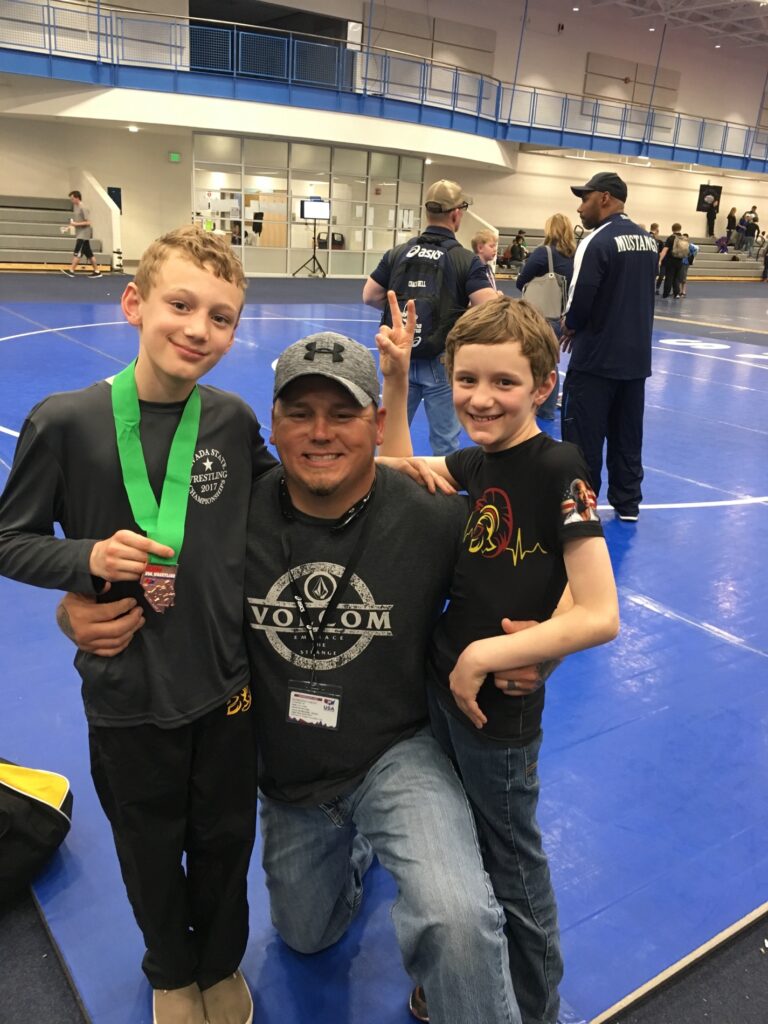
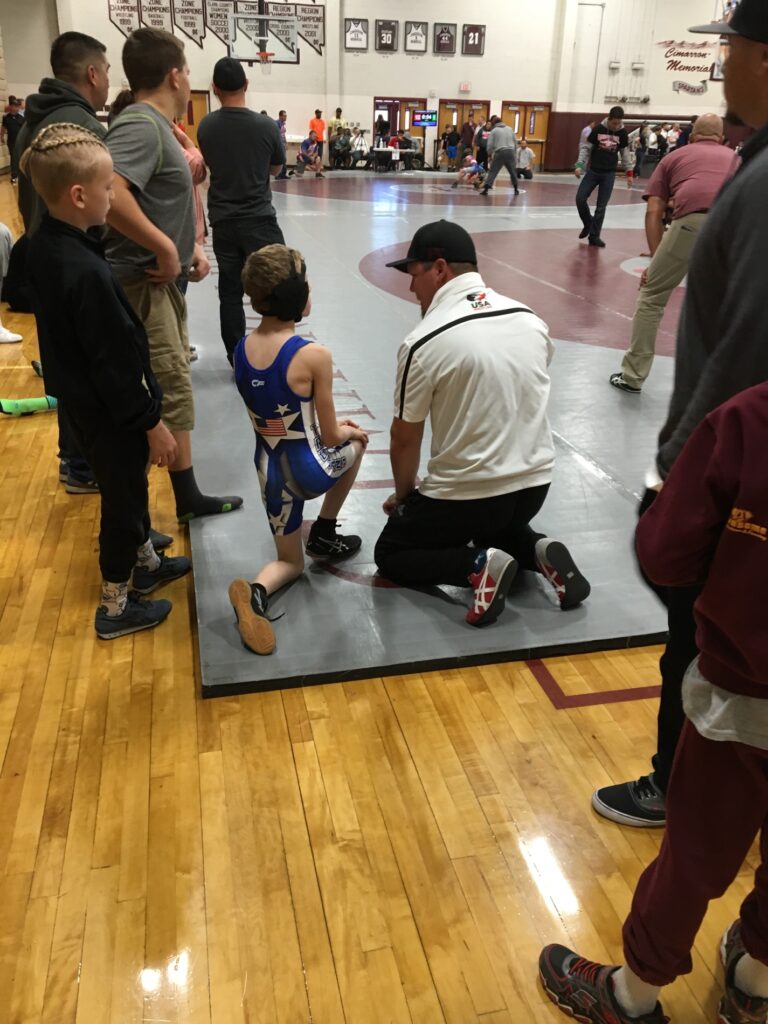
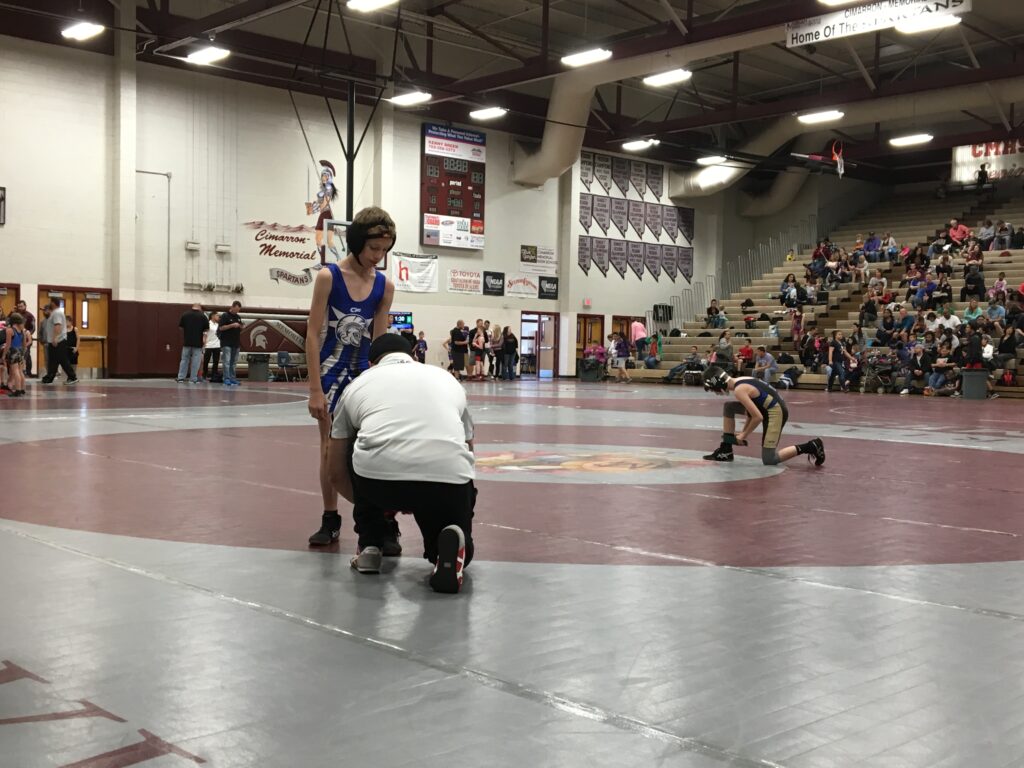
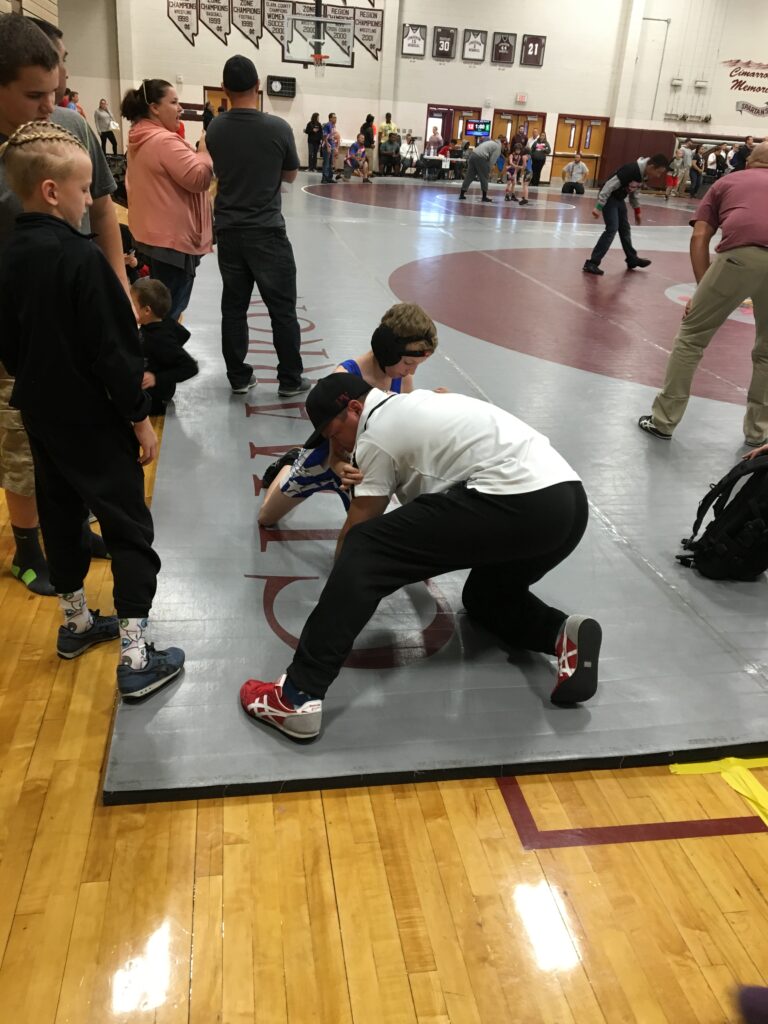
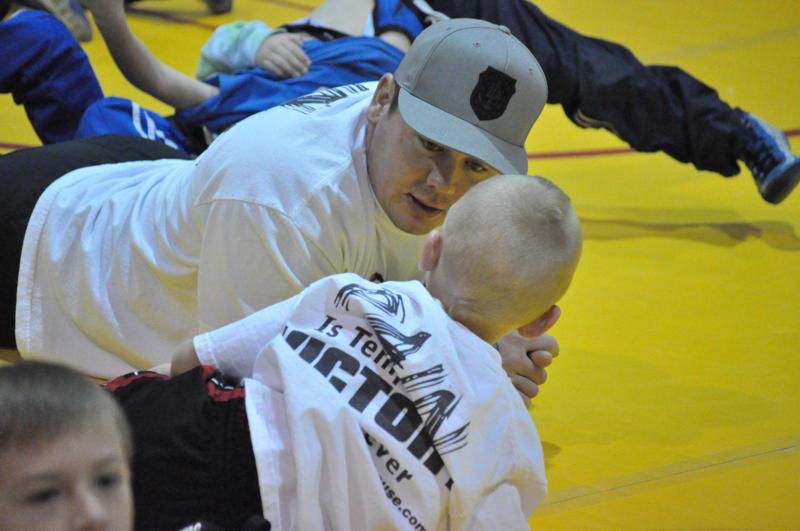

Ray’s commitment went beyond practices and games. He dedicated countless hours to ensuring his players had what they needed, from organizing fundraisers to personally driving athletes to games and tournaments. He was known for his selflessness, filling his own car to ensure that no one missed out. Every end-of-season celebration was a grand affair, often taking the team to Las Vegas for fun-filled outings at places like Skyzone and Crystal Palace, with Ray and his family making sure every child could participate.
A Lasting Legacy in the Community
Ray’s impact reached beyond sports and into the broader community. He organized fundraisers to support team needs, often volunteering his time at local events. When two players were injured in a fire, Ray was among the first to organize a community fundraiser to support the families. His willingness to help others was a defining quality. Gunner noted how his dad’s legacy will be honored through the Ray Cortez Scholarship Fund, which will help send young wrestlers to college. “Dad was always willing to help kids reach their dreams,” he said.
Kayne Horibe shared a heartfelt tribute: “Thank you, Coach Ray, for always being there and supporting us no matter where you lived. You treated us all like family.” Ray’s legacy will live on through his athletes and friends, many of whom have adopted his values of resilience, respect, and perseverance.
For Matthew Lopez, Coach Ray’s guidance was transformative. As he put it, “I couldn’t have started my football career without you, Coach. You helped me grow to love the sport.” Dylan Avena echoed this gratitude, saying, “Coach, thank you for always supporting me and for raising a son I could look up to as an example.”
Creating Lasting Traditions and Inspiring Future Generations
Ray’s influence will continue through the traditions he started and the values he passed down. Gunner shared that his father’s mantra—“Hard work, never quit”—was more than just words; it was a way of life that Ray lived by. His dedication, which saw him working long hours as a union carpenter and spending nights and weekends coaching, exemplified what it meant to be fully committed. “He never went in halfway,” Gunner said. “He taught us that if you’re going to do something, you give it everything.”
The annual end-of-season banquets, which Ray organized with his family, were a highlight for his players. Johnny recalls, “After yelling and running the kids all season long, I was surprised at the end of the season party, where that tough as nails, hard-nosed, sharp tonged coach Ray made sure the kids got a BIG trophy and a great party. Ray used his loud, tenacious coaching voice to describe a kid and their accomplishments as he handed out the hardware. The kids ate it up. They loved Ray.” These events, Gunner noted, were about more than fun—they were Ray’s way of making each player feel valued and part of a larger family.
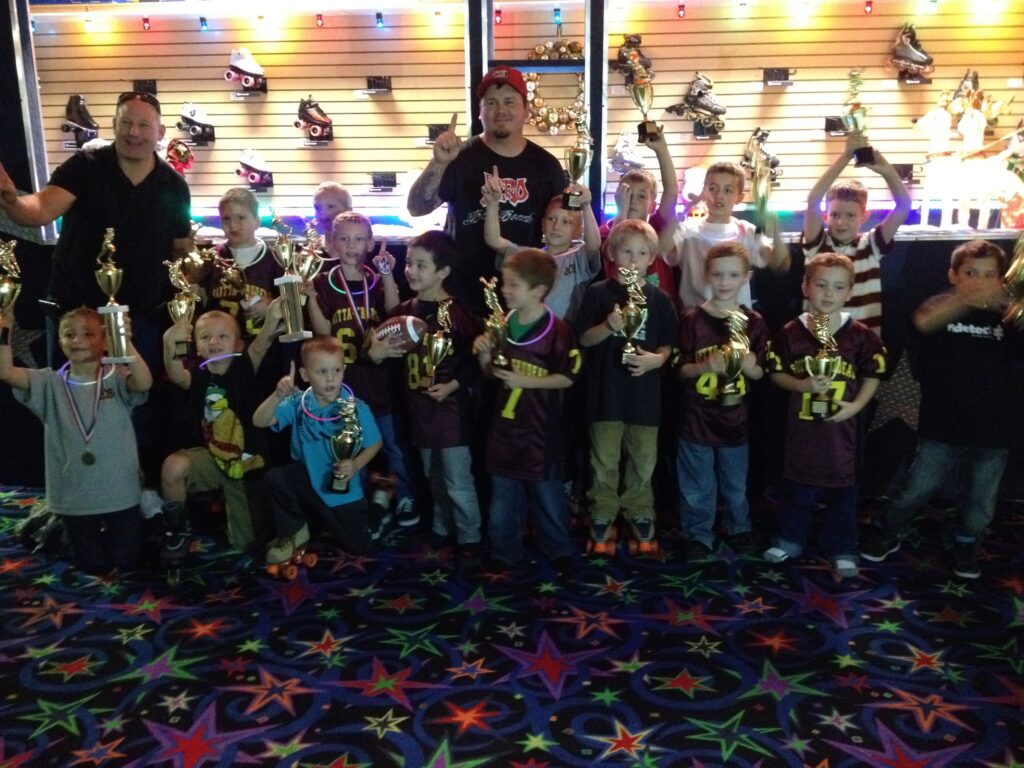
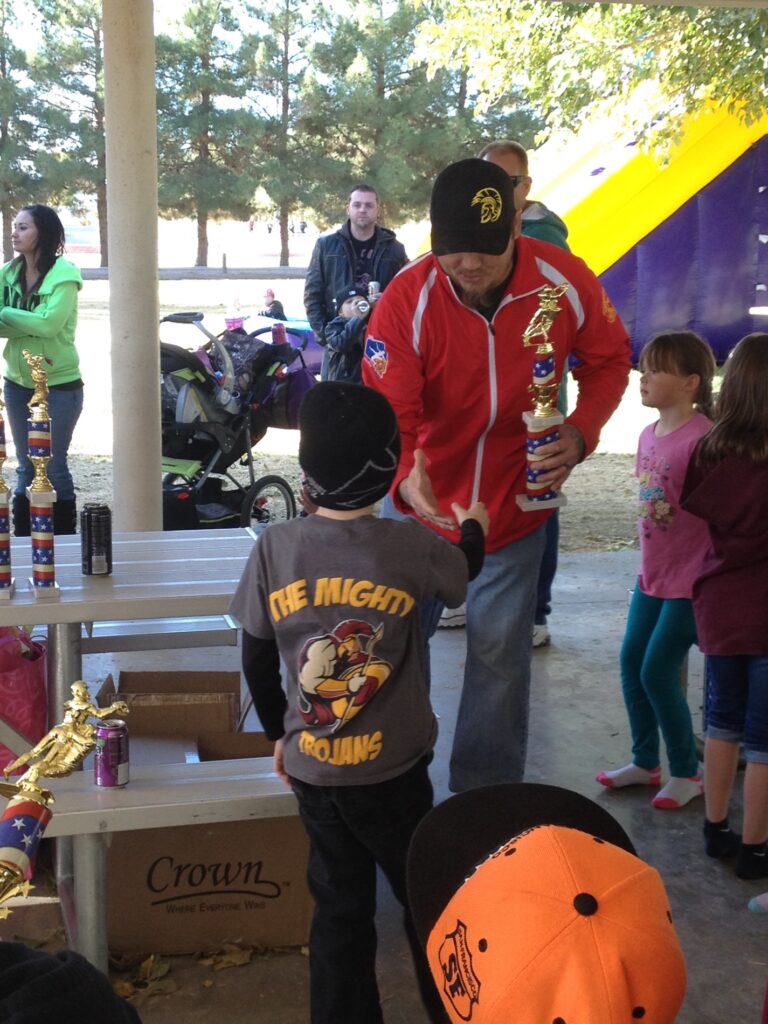
Honoring Ray’s Life and Legacy
Ray Cortez was a coach, a mentor, and a friend who transformed lives with his dedication and compassion. His legacy lives on through his family—his wife, Lee Cortez, and his four children: Jordan Folkerts (32), Destiny Montoya (27), Michael Hughes (23), and Gunner Cortez (18). Together, they embody the values of resilience, commitment, and strength that Ray instilled in his players and his own children. His family, who stood by him through every practice and every game, will continue to honor the ideals he lived by, ensuring his impact endures in the lives of future generations.
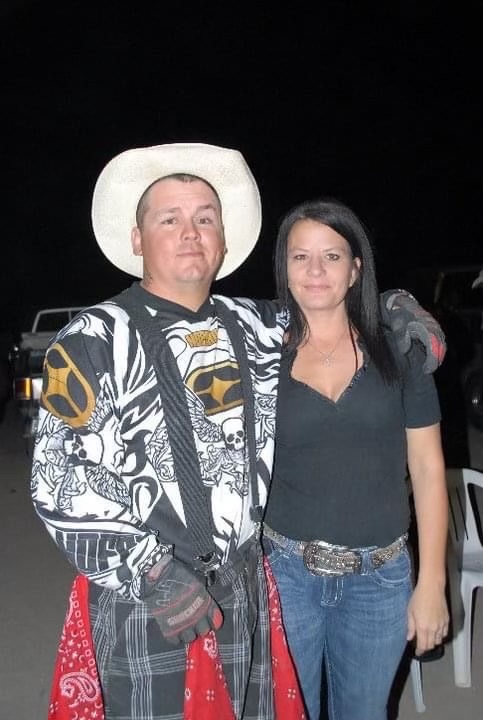

In the words of his son, Gunner: “Dad, I’m grateful for everything you taught me. I wish I could go back and relive those moments, but like you always said, ‘You can’t look back; you have to move forward.’ I’ll keep living for you, and one day, I’ll be the father to my kids that you were to me. Thank you, Dad, for always being my best friend.”



